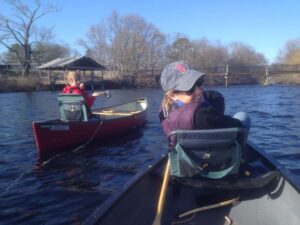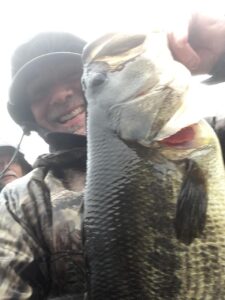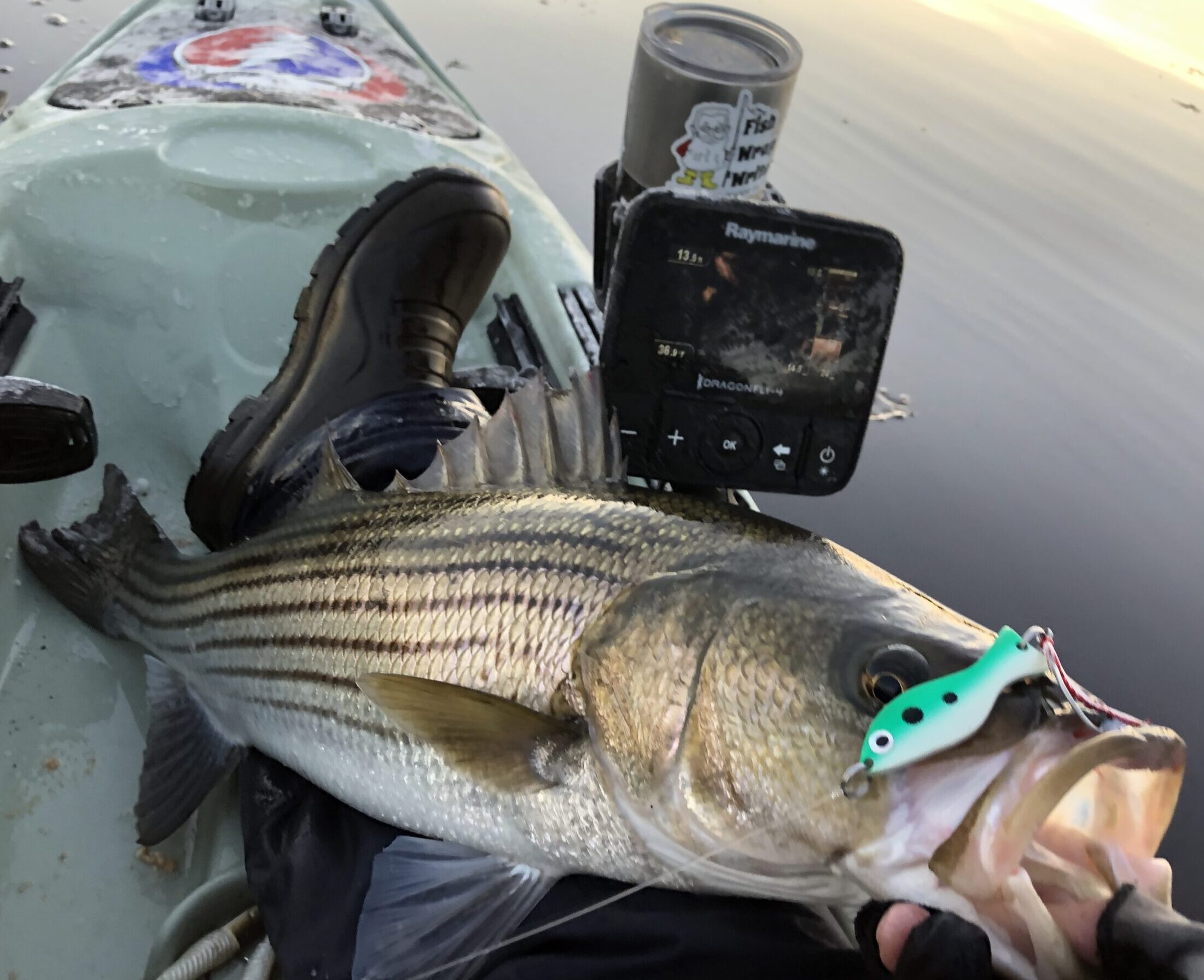It’s Time to Renew Your Licenses
The arrival of 2021 means it’s time renew outdoors licenses, including for saltwater fishing and put eyes on the calendar for renewing state freshwater fishing and hunting licenses. Monies raised by licenses are critical to purchasing and protecting open space, providing hunter education and supporting recreational fishing and access to all of that.

Purchase license, paddle canoe, catch fish, laugh all the way home
Your state or federal saltwater license expired on December 31, 2020. There are still people out casting for holdover stripers and schools of white perch and it’s easy, with the holidays, hard weather and that Covid thing hammering us 24/7, to forget about renewing so now’s the time to go to www.dem.ri.gov and look for Recreational Saltwater Fishing Licenses.
Here in the Ocean State, the saltwater license program was initiated in 2010 after being signed into federal law in 2006 as part of the Magnuson-Stevens Fishery Conservation Act. Some folks, including me, initially considered this an infringement on our right to access the shoreline and catch fish recreationally without charge. Solid arguments were made that this license was in fact a tax on our Constitutionally protected right to access the shoreline. One writer said, “According to Representative Blake Filippi, (D, District 36), it costs approximately three dollars to produce and manage this license but we are charged seven dollars. So is the first three a fee and the second four a tax? Perhaps the discussion should be not what good things are done with our money but why it was collected in the first place. Rep. Filippi and four others have introduced House Bill H 5352 to eliminate our state salt water license on the conviction that it is unconstitutional.” There was some great discussion but after a few years, the data collection and financial benefits became clear.
The RI Saltwater Anglers Association worked closely with the State to secure a dedicated fund which would allow license revenue to only support saltwater activities, like new boat ramps in Galilee and construction of the new fishing pier on the old Rocky Point land. Classic Little Rhody; no matter what happens there, we’ll always know it as Rocky Point. According to RISAA, the restricted receipt account holds license fees, minus two dollars for vendor commission, which can only be used for:
- Administering and enforcing the recreational fishing license program
- Managing Rhode Island’s marine recreational fisheries, with particular reference to improving state-based fishery catch and effort statistics and stock assessments
- Enhancing recreational fishing opportunities
Stay Outdoors With Renewed Licenses
You can be sure that RISAA is at the table for each proposed expenditure and year-end report review. Another benefit of this program is that fees generated by license sales can be matched with the US Fish and Wildlife’s Sportfish Restoration Program, which has its origin with the Pittman-Robertson Wildlife Restoration and Dingell-Johnson Sport Fish Restoration acts. That all means that participating states can receive a three to one dollar match for a host of supporting projects. If you purchase a federal license, fees are deposited into their general fund with no direct return to Ocean State anglers.
Freshwater fishing, hunting and trapping licenses are valid until the last day of February, 2021. While it would seem prudent to order your new license now, sitting comfortably at the computer, ordering your saltwater license, they are not available just yet.

Ahh, Benny’s how we miss you.
Online sales of all licenses began in 2020 and as is true with anything new or government related, things just take time. Years back, there was expected frustration of waiting in line for ten minutes for the nice girl behind the counter at Benny’s to finish her parking lot cigarette so you could sign the book and buy licenses and a trout stamp. Frustration there was because the State struggled to get books for stamps to dealers before opening day of trout season but it was always good to pick up a toaster oven, snow shovel and bag of caramels while you waited. Ah, Benny’s. Perhaps it will be possible one day to update months before your current license and stamps expire, but for now, you’ll have to put a note on your calendar for the last week of February to visit a local tackle store or go online.

Bob Buscher catches loads of big largemouth, with a valid license of course.
License fees will be increasing slightly in 2024. Most will rise by only a few dollars, like resident hunting and fishing licenses which rise from $18 to $21. These overdue changes were part of House Bill 7171, which was signed into law on December 21, 2020. Our license fees remain below national averages and given our relative proximity to excellent fishing and hunting opportunities, are a bargain.
If all this talk of renewing outdoor licenses, fishing and data makes you want to get more involved and earn some license money, the Atlantic States Marine Fisheries Commission is hiring three temporary Fisheries Field Technicians. Based on Jamestown, the part-time, on-call positions will work as part of the Access Point Intercept Survey. Collecting voluntary data is critical to our understanding of who caught what, when, where and how. You ask a few key questions, possibly weigh, measure and identify landed species and report back your findings. You may also be called to take a trip on a head boat to collect all sorts of information. My personal experience with APIS workers has been highly enjoyable and gave me that warm fuzzy feeling for helping regulators and biologists understand what fishermen and women are catching, or more often than not, trying to catch. Send your cover letter and resume to Laura Leach at asmfc-jobs@asmfc.org with the (20-011) in the subject line but first, go to http://www.asmfc.org/jobs and read more of the fine print.






0 Comments